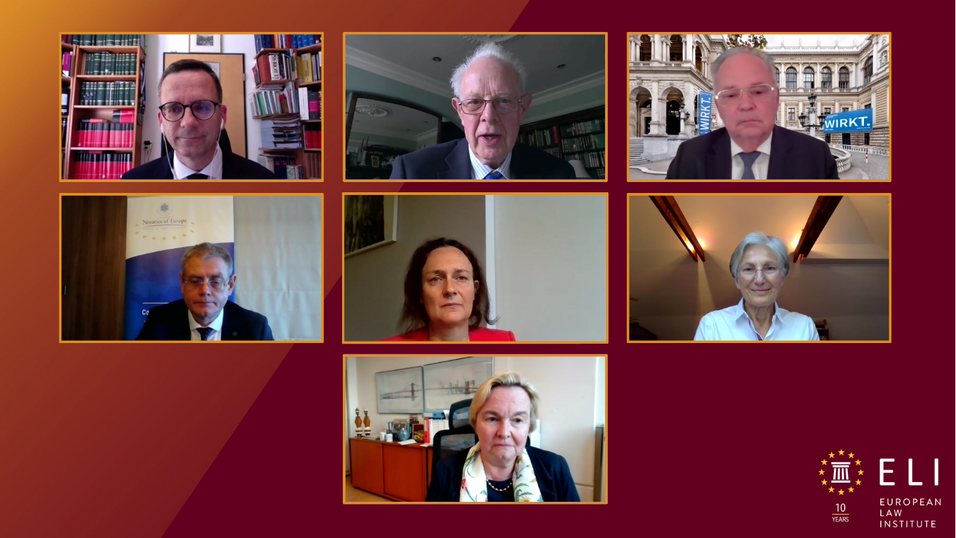Heinz W Engl, Rector of the University of Vienna, presented the important and fruitful relationship between ELI and the University of Vienna. The latter continuously supports ELI, ever since it won the tender to host the ELI Secretariat. Engl emphasised the significance of ELI for the University of Vienna, which manifests itself by the research and Europe-wide networking opportunities. Furthermore, it offers scholars and young scientists to take on an active role in ELI’s projects.
Bénédicte Fauvarque-Cosson, Judge at the French Conseil d’Etat, spoke about ELI’s beginnings and brought forth ideas for future activities in the area of education. Fauvarque-Cosson stressed that one of ELI’s most extraordinary achievements was the gathering of academics, practitioners, and institutional actors in a common project. She focused on the idea of taking an active role in education, as ELI is the voice of the European legal community and could have a positive influence on education through its diverse Membership.
Irmgard Griss, former President of the Austrian Supreme Court, emphasised that ELI is a truly European institution. She further characterized ELI as an organisation that has a convening, catalysing, and identifying power in a sense that it provides a forum for discussions and negotiations, produces workable solutions, and gives jurists across Europe the face. As ELI has excelled in these areas throughout the past ten years, it has become a redeemed institution and a valuable partner for EU institutions.
Anna Joubin-Bret, Secretary of UNCITRAL, pointed out the partnerships ELI had established over the years, in particular with UNCITRAL. Joubin-Bret described ELI’s activities as a driving force for UNCITRAL’s own legal research and development; for instance, as with the Project on a Data Economy that brought UNCITRAL’s attention to the legal aspects of the digital economy.
Ádám Tóth, President of the Council of the Notariats of the European Union (CNUE), stressed the long-lasting relationship between ELI and CNUE, which started at the Inaugural Congress in Paris. Ever since then, the CNUE and its Members have been involved in numerous ELI projects. Tóth emphasised that ELI acts as a laboratory for legal harmonisation in Europe and as such makes an invaluable contribution to legal development.
A discussion followed, during which panelists shared their personal memories and experiences with ELI, and debated some challenges ahead, such as the digitalisation, among others.

